In 2012, the Task Force on Disaster Psychosocial Services (TFDPS) was founded with the assistance of Corporate Clinical Psychology Services (CCPS) to improve the management and service quality of disaster psychosocial services (DPS). TFDPS aims to:
- Formulate policy, steer strategic direction and advise service development of the DPS in pursuit of quality disaster psychosocial services in HA
- Fortify the preparedness and professional competency of the HA workforce as well as promote community preparedness in response to disasters
- Lead and coordinate management of DPS among clusters
- Develop DPS Plans for local disasters and Emergency Response Operation Outside Hong Kong (EROOHK)
Service Target:
-2019.03.28.PNG)
Service Scope:
1. Provide training and professional drills for staff preparedness and support
HA medical social workers and clinical psychologists are required to provide DPS from time to time. Therefore, TFDPS organises different training and drills to better prepare HA staff for the delivery of DPS.
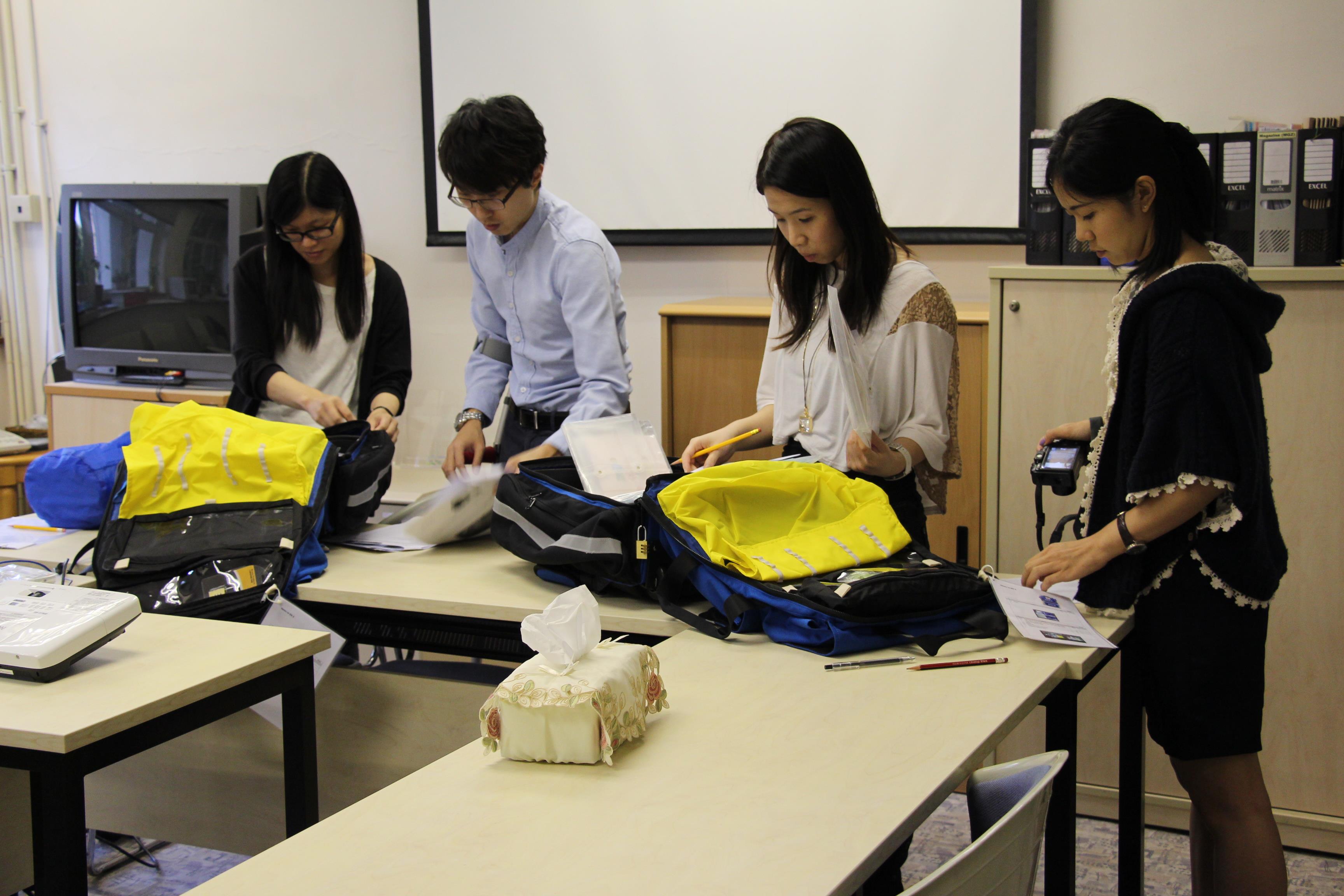
CCPS – Internal Drills
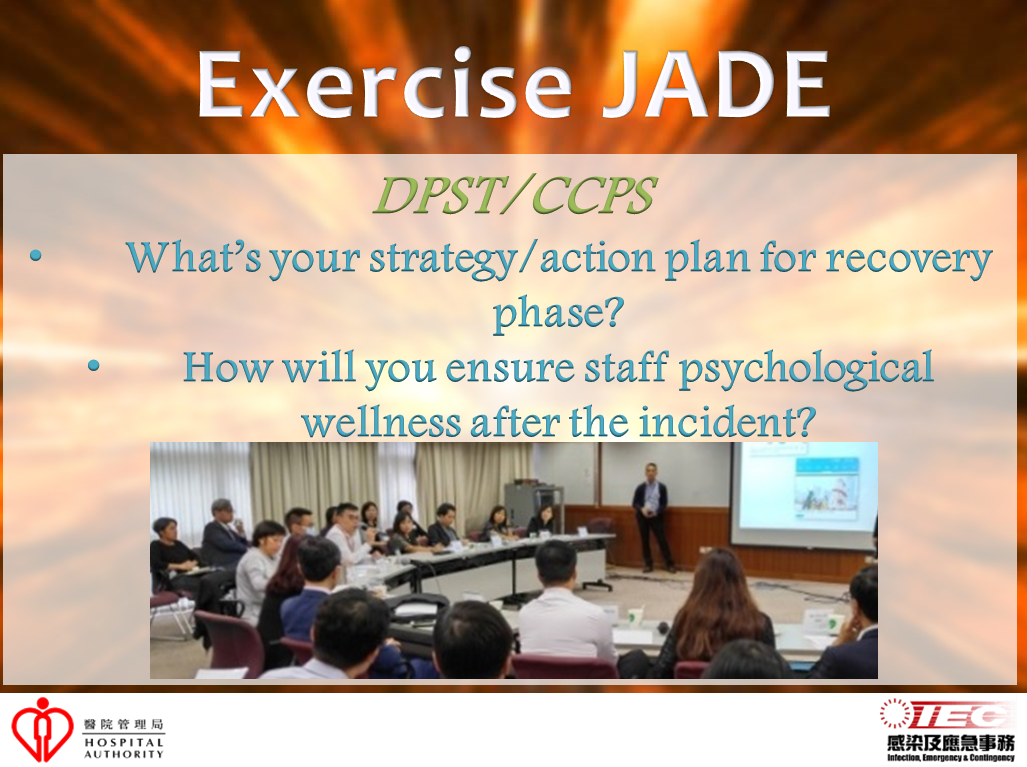
Representatives from CCPS, TFDPS, and Disaster Psychosocial Services Teams (DPSTs) assisted to coordinate and participate in Exercise Jade – an exercise simulating an incident involving major casualties which was held by the Head Office Major Incident Control Center (HOMICC) in 2016.
The DPSTs participated in Exercise Chocolate in January 2019, which is the first drill arranged by TFDPS specifically for DPST members. The scenario involved a large explosion at a carnival. Members exchanged ideas and learned from one another during the exercise. Participants took part in the exercise actively (left), and took a photo together after the event (right).
2. Formulate, implement, and review the contingency plans of DPS
CCPS was invited by TFDPS to review and incorporate DPS elements into contingency plans. Previous contingency plans reviewed include "HA Civil Disaster Contingency Plan", "HA Contingency Plan for Chemical, Biological, Radiological, Nuclear and Explosives (CBRNE) Incidents", and "HA Contingency Plan for Major Accident at the Hong Kong International Airport".
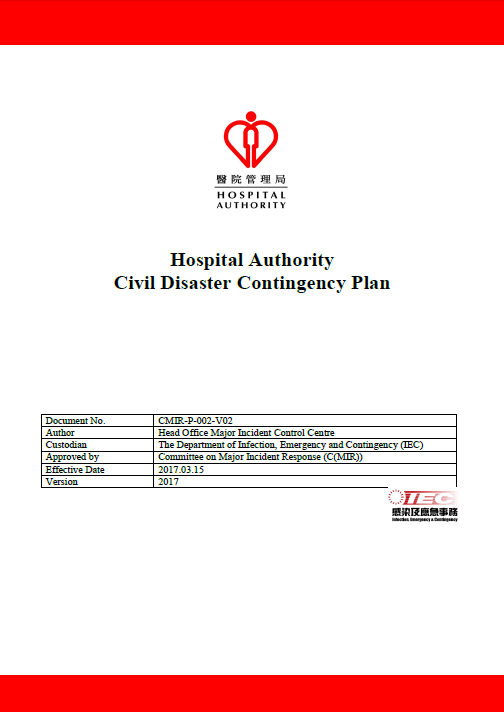
HA Civil Disaster Contingency Plan
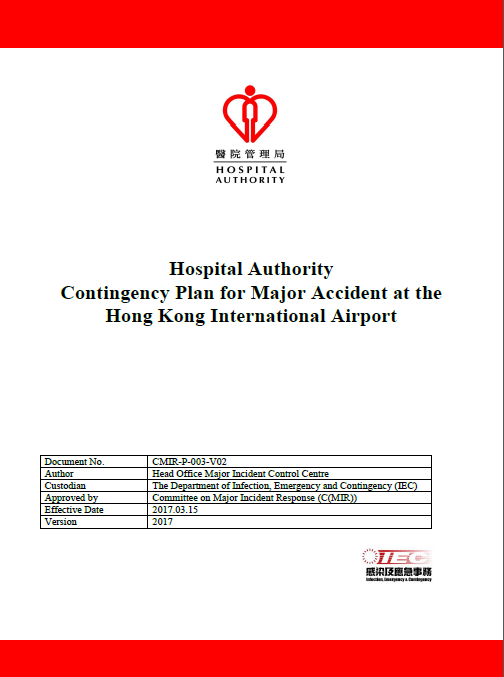
HA Contingency Plan for Major Accident at the Hong Kong International Airport
3. Coordinate Disaster Responses
CCPS was invited by TFDPS to help enhance the notification mechanism and communication between the "Head Office Major Incident Control Center (HOMICC)" and Disaster Psychosocial Services Teams (DPSTs).
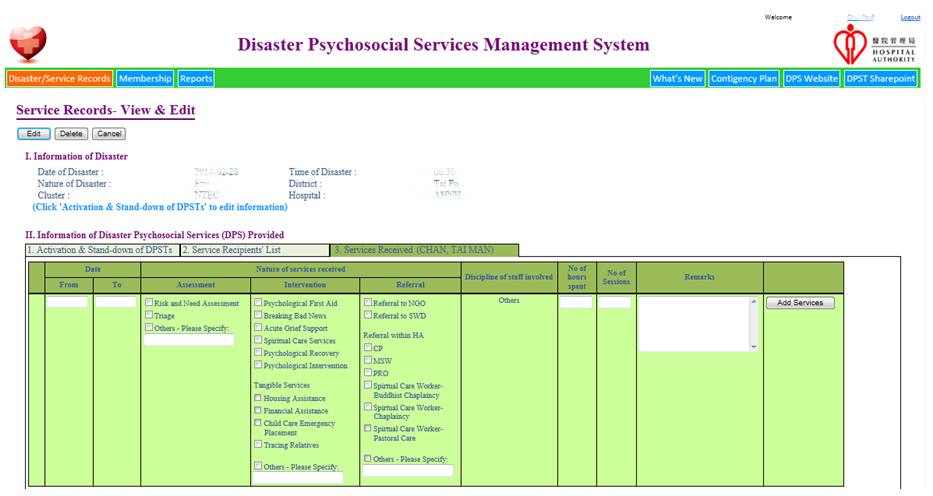
Disaster Psychosocial Services Management System
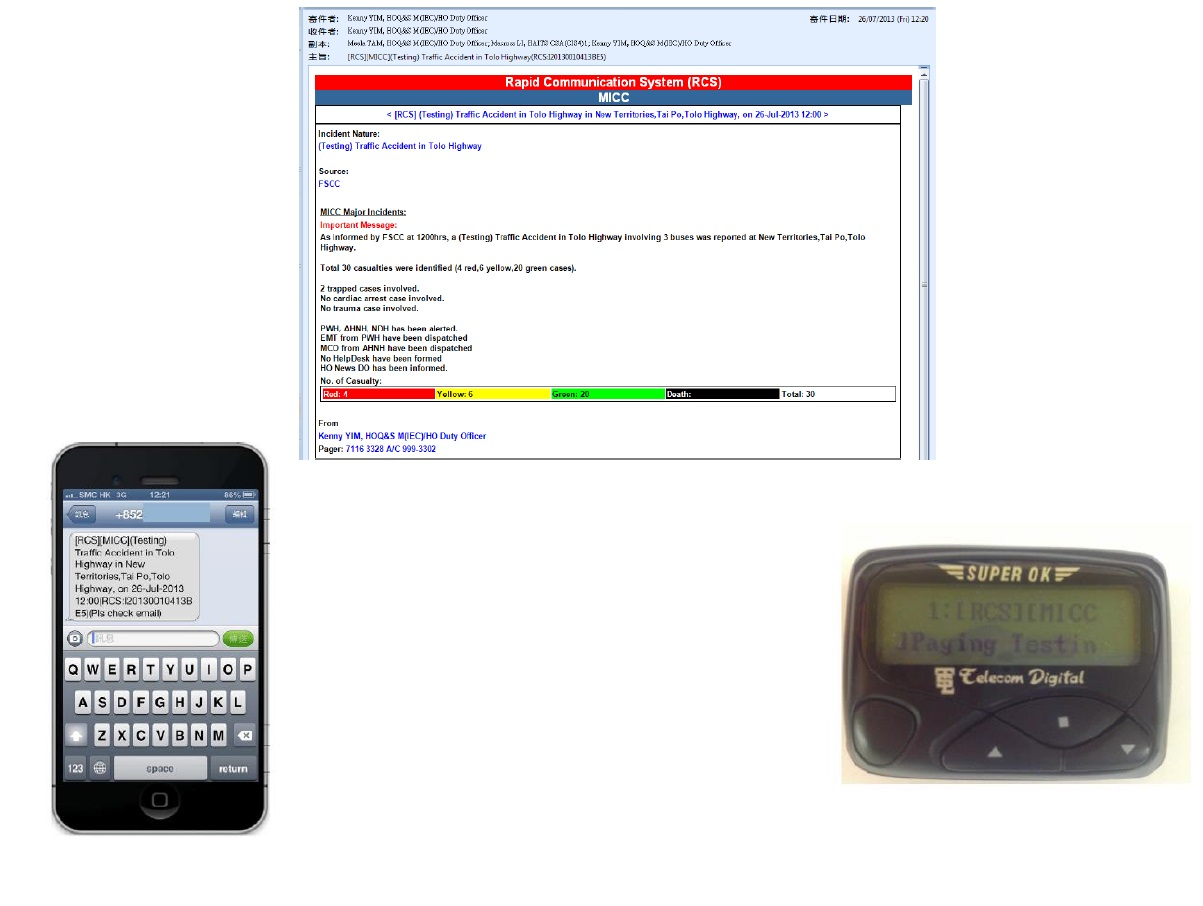
HOMICC notifies via SMS, pager messages, and emails for situation update.
TFDPS also supports DPSTs with improving work facilities and organising different professional trainings and meetings for DPSTs' future development.
Purchasing extra equipment for the DPSTs (such as laptops). With extra equipment, DPST members are able to set up mobile workstations in the hospitals' Accident and Emergency Departments (A&E) to deliver DPS for the injured and their families.
4. Support "EROOHK"
TFDPS and CCPS arrange relevant training for Clinical Psychologists who join the HA EROOHK Support Team, equipping them to conduct crisis interventions and psychological assessments and provide DPS to affected children, adults and families in the disaster sites.
5. Develop professional resources for DPS
TFDPS and CCPS have developed a series of resources to familiarise staff with DPS and enhance their knowledge and ability to deal with disasters.
Online Learning Courses - "Disaster Psychosocial Services" section in "Healthcare Service Management Training
6. Prepare psychoeducational materials
TFDPS prepares psychoeducational material in various forms such as brochures and websites to increase the public's knowledge of preparing for, responding to and recovering from disasters.
Website developed for the general public and disaster workers:
Brochures co-developed by CCPS and TFDPS are as follows (Chinese & English versions available):
For Disasters Survivors
For the Bereaved (Adult & Child)
For First Responders and Healthcare Workers
.PNG)